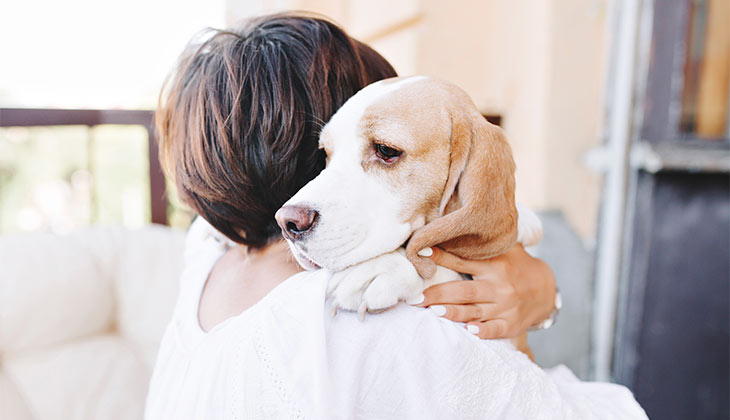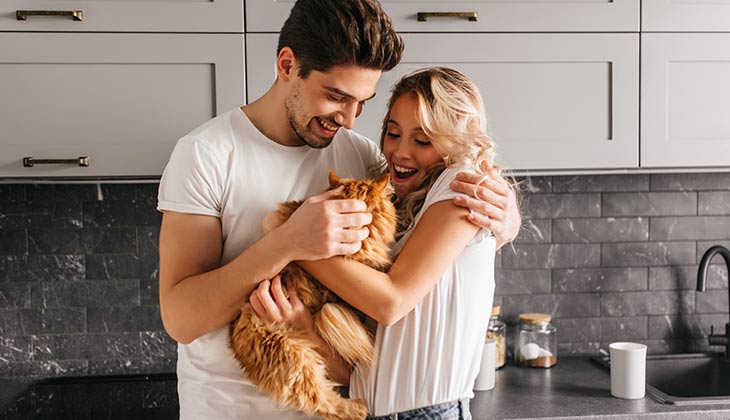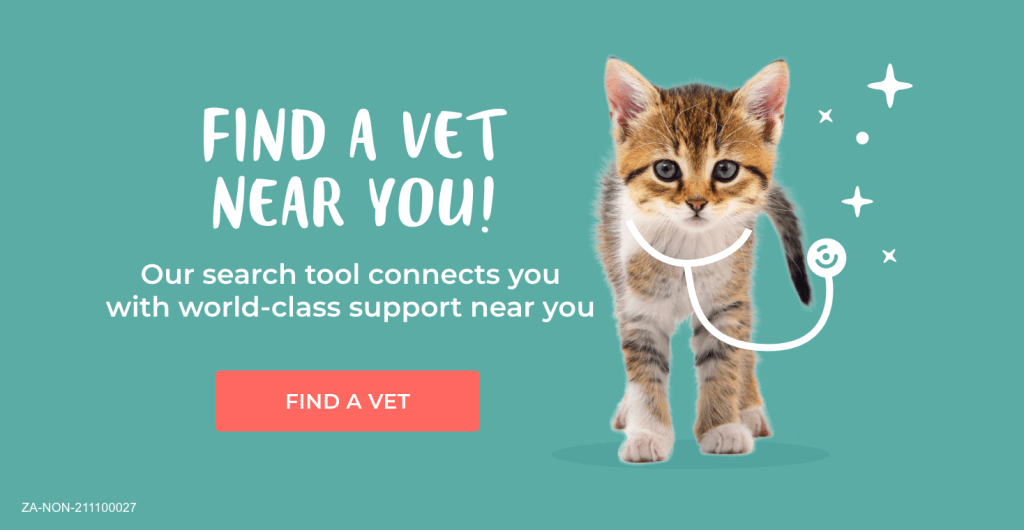The Importance of Vaccinations for Your Pet
HEALTH & PROTECTION
12 May, 2022
6 minutes

Vaccinations are essential to protecting your furry family member against dangerous viral and bacterial diseases. Vaccines are preventative measures that allow your cat or dog to create a level of specific immunity to fight those diseases in the future. Without proper vaccination, your pet is left unprotected.
The proper inoculations can help your pet resist several contagious, and often life threatening diseases such as canine distemper, feline panleukopenia, and various respiratory tract diseases. They also protect against transmissible diseases such as rabies that also pose a risk to humans – so-called “zoonotic diseases.”
It can be confusing and even overwhelming for pet parents when deciding which vaccines are best for their pets. The more you know about vaccinations, the easier it will be to take informed care of your cat or dog. Continue reading for some commonly asked questions about vaccinations and the answers that will help you understand more of what you need to know to protect your four-legged friend!
How do Vaccinations Work?
A vaccination stimulates your pet’s immune system by mimicking the infectious organism but in a safe way, without causing the disease. This enables the immune system to remember the organism and be prepared to tackle it but without having to experience the disease first. In essence, a vaccine ‘teaches’ the body to defend itself against the infection before it gets sick.
Do All Pets Receive the Same Amount of Vaccine?
Yes. Since vaccines work by stimulating the immune system, a small dog, for instance, receives the same amount of vaccine as a large one.
If My Pet isn’t Feeling Well, is it still Acceptable for him or her to be Vaccinated?
While it is possible for a pet that’s not feeling well to be vaccinated, being healthy at the time of vaccination is usually recommended. If you are concerned that your pet isn’t feeling well on the day his or her vaccine is due, you should contact your veterinarian before bringing your pet in.
What Happens if my Pet misses a Vaccination or Booster?
All pets require vaccination at specific intervals throughout their lives to ensure they are fully protected. It is very important that your pet receive all recommended vaccinations at the appropriate time. If you miss a dose, contact your veterinarian as soon as you can, and make an appointment to get your pet back on schedule.

Is Every Recommended Vaccination Required or Mandatory?
Some vaccines, such as rabies, may be legally required. Vaccines referred to as “core” vaccines are strongly recommended for all dogs and cats because they protect against significant disease threats for your type of pet or for the area in which you live. Other vaccinations, referred to as “non-core,” may also be recommended, depending on where you live and/or on your pet’s lifestyle. Your veterinarian will recommend which vaccines are right for your pet.
Can My Pregnant Dog or Cat be Vaccinated?
Vaccines that have been tested and shown to be safe for use during pregnancy can be used if needed; for example some of the Nobivac® vaccines are approved for use during pregnancy and when appropriate. However, it is generally advised to avoid any unnecessary medical or surgical procedure during pregnancy since unexpected problems may occasionally occur. In the case of vaccination, it may be better to plan ahead and vaccinate before your pet mates if she is going to be due for a regular booster while pregnant. Alternatively, it may be possible to safely delay the booster until after the pregnancy and birth. Your veterinarian will be able to advise you in this situation.

Do Older Pets Still Need to be Vaccinated?
The short answer is “yes.” Older pets can still suffer from infectious diseases. The lifestyle of your pet, however, may change as he or she ages, which may mean that some of the optional, “non-core” vaccines that your pet has routinely been given are no longer considered necessary. Your veterinarian can provide more specific advice on this.
Humans don’t get Vaccinated Every Year, so why would My Pet need to receive a Vaccine Annually?
The duration of immunity following vaccination can vary depending on the type of vaccine used and on the individual animal. Some vaccines provide protection that lasts for at least 3 years. In these cases, it is advised to re-vaccinate at 3-year intervals. Other vaccines, however, do not provide protection that lasts as long. In this case, a “booster” vaccination, given every 1 to 3 years, is a highly effective way of ensuring that every pet remains protected, thereby minimizing the risk of infectious disease.
Why does my Puppy or Kitten require repeated Vaccinations?
There are two main reasons for revaccinating your puppy or kitten. First, some vaccines require two or more doses to be given initially, a few weeks apart, to ensure they stimulate a full protective immunity. Secondly, for a period of time, young pets are protected by antibodies they receive from their mother (mostly in the first milk). Over the first few weeks or months of life, however, these maternal antibodies fade, leaving pets vulnerable to many infectious diseases. Although maternal antibodies are important for early protection, they can interfere with vaccination. Thus, repeat doses of vaccine are often required to ensure that vaccine immunity is triggered when pets are at their most vulnerable

Does my Pet need to be Vaccinated if he or she stays Indoors all the time?
Even indoor pets require vaccination against certain diseases. This is because some organisms that can infect your pet and cause disease can be carried into your home by visitors, other pets, or unwanted house guests such as parasites, rodents or bats. There is a risk, too, if your pet ventures outside or travels to a boarding facility or groomer.
Of course, if you have any other questions about vaccinating your cat or dog, your veterinarian is your partner in the health and wellbeing of your beloved furry friend and you should discuss any concerns you are having with them.

RECOMMENDED






